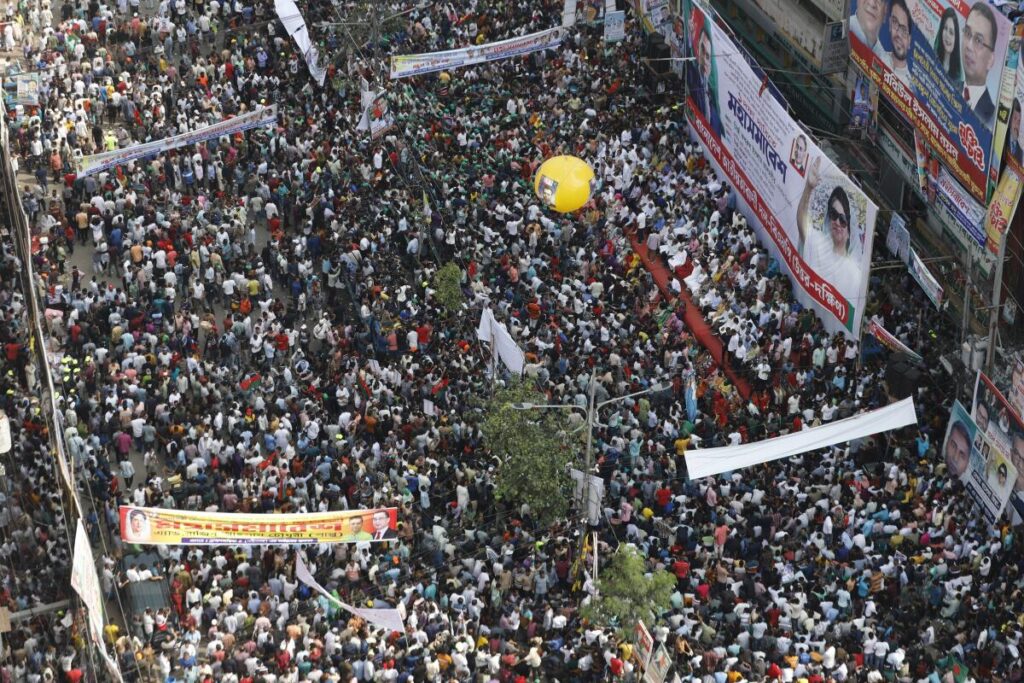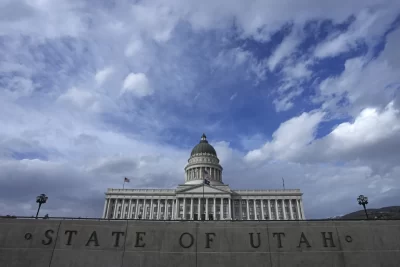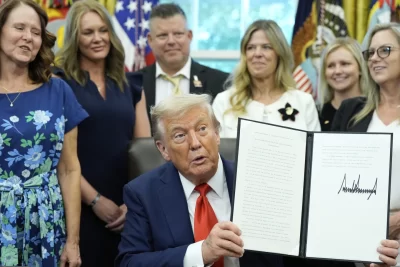
Authorities in Bangladesh detained a key opposition figure from the Bangladesh Nationalist Party, which called for a nationwide strike Sunday following a day of violent clashes with security forces.
Media reports said at least three civilians died in the violence, which included an arson attack in the nation’s capital, Dhaka, on Sunday. Dozens of others were injured during the strike.
At least one police officer was killed and scores were injured Saturday when a massive rally by tens of thousands of opposition activists turned violent, police said. The opposition is demanding the resignation of Prime Minister Sheikh Hasina and the transfer of power to a non-partisan caretaker government to oversee general elections next year.
Police on Sunday detained Mirza Fakhrul Islam Alamgi, the secretary general of the Nationalist Party led by former Prime Minister Khaleda Zia, Hasina’s main rival, said Faruk Hossain, deputy commissioner of the Dhaka Metropolitan Police in charge of media.
The party denounced his detention and announced a three-day blockade of mainly roads and public transportation across the country starting on Tuesday.
Hossain also said that 1,300 people were being investigated for Saturday’s violence. Local reports said police had raided the homes of several opposition leaders overnight in Dhaka.
Home Minister Asaduzzaman Khan told reporters that leaders of Zia’s party have to bear responsibility for their role in the violence, the United News of Bangladesh agency reported.
On Sunday, at least three vehicles were set on fire in the capital as police increased security.
The United News of Bangladesh agency reported that two people, including an opposition activist, were killed in Dhaka while a ruling party man died in the northern district of Lalmonirhat on Sunday. It said at least 42 vehicles were vandalized in Dhaka and two other cities in northern and northeastern Bangladesh.
The news agency said more than 100 people were injured in parts of Bangladesh while police arrested over 200 opposition supporters in Dhaka and in seven other districts across the country during the daylong strike.
The European Union and the United States urged all sides to maintain restraint as tensions soared ahead of the national elections, expected to be held in January.
The U.S. assistant secretary of state for South and Central Asian affairs, Donald Lu, said Washington “will review all violent incidents for possible visa restrictions.”
The rivalry between Hasina and Zia has been ongoing for decades, and Hasina’s government has been under pressure for months as the opposition has held largely peaceful anti-government demonstrations.
Critics and rights groups have criticized Hasina’s administration for suppressing opposition voices, an allegation authorities have denied.
Hasina, who has touted her development agenda, hopes to return to power for a fourth consecutive term. She says the election should be held under her government’s supervision as specified in the constitution. The opposition says the election won’t be free and fair, despite Hasina’s pledges.
The prime minister recently told parliament that the U.S. wants to remove her from power at any cost. The U.S. has threatened to deny visas to those it says were obstructing the election process. They include members of law enforcement agencies as well as the ruling and opposition parties.



